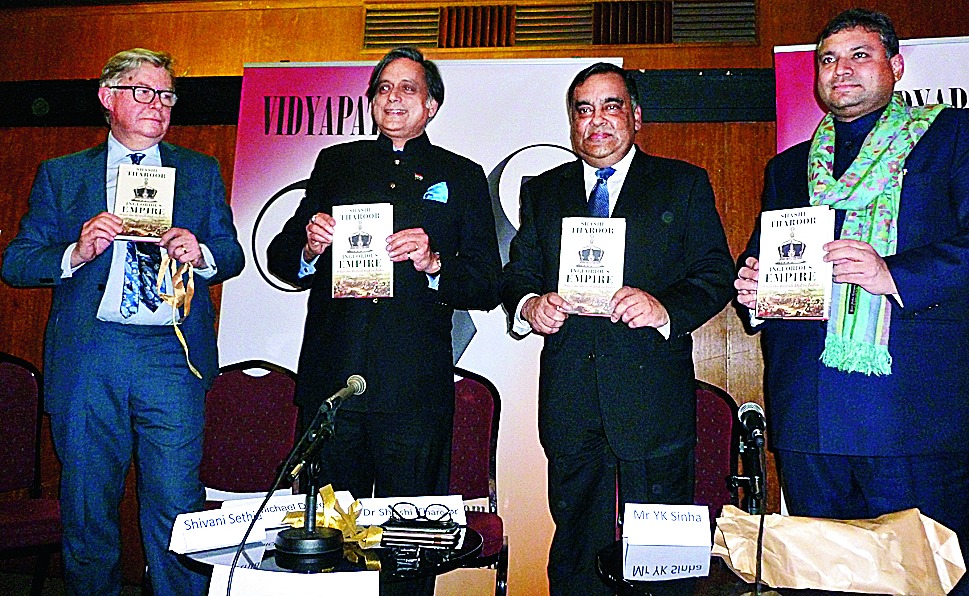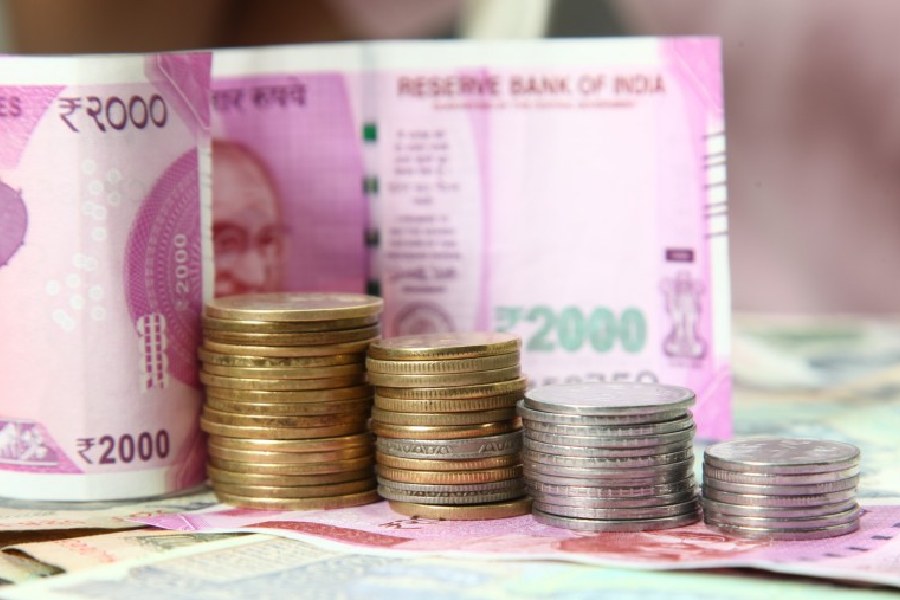Shashi's Brit bashing as an art form


Enough. No more. Stop. Whatever the historical sins of which the Raj has been guilty, Shashi Tharoor has extracted adequate revenge from the British after a whirlwind book tour.
The confident author was hailed as a "rock star" by his delighted publisher, Michael Dwyer.
Last Sunday, Dwyer had to leave the platform at the Royal Overseas League because all the copies of Shashi's Inglorious Empire: What the British Did to India (Hurst; £20) had been snapped up (discounted to £15), mostly by good looking Indian women - and he had to dash off to his office to get a fresh supply.
The title is different from the one used in India: An Era of Darkness: The British Empire in India (Aleph; Rs 699).
Anyway, it is about time someone did a sequel: Glorious Book Tour: What Shashi Tharoor Did to the British.
It's not pretty. We needed a referee to call a halt to a mismatched boxing match.
Shashi clearly knows his stuff. His interviewers don't.
"What about the railways - shouldn't you be grateful we built that for you?"
"Yes, but you built that so you could more effectively plunder the country, take cotton out, have them made into textiles in your 'dark satanic mills' and sell them back to India."
"What about cricket?"
"A good thing because it allows us to thrash you."
On national TV, Shashi said Churchill was responsible for 4 million deaths in the Bengal Famine of 1943 - and ranked him alongside Hitler and Mussolini.
What is curious is that Shashi is listed in the official brochure of the "UK-India Year of Culture 2017" as one of those bringing sweetness and light to the bilateral relationship.
Pak perspective
There was on the whole no discord between Hindus and Muslims in modern India, replied Shashi, adding there was almost no chance of improved relations between India and Pakistan so long as the latter was ruled by the military.
At Partition the Indian state got an army, whereas with Pakistan, "the army got a state", he quipped.
Moni was generous about his book: "With his customary fluency and charm, Shashi Tharoor rejected the hypocrisy and wrong headedness of Right-wing historians who would project the British Raj as a benign, benevolent engagement, and exposed it for what it really was: a ruthlessly exploitative economic enterprise."
Friendly fire
Lord Swraj Paul tells me he has bought 20 copies of Tharoor's book, which he has been gifting to his friends.
"English or Indian?" I asked him.
"Oh, English, of course" he replied. "They should know what happened."
He will be visiting India in April and this time he will be going to Calcutta to inaugurate the Lady Aruna Paul wing at Loreto College, where his wife was a pupil and later a teacher.
Mamata Banerjee really should allow Swraj to build something on his Singur land, now lying empty.
Golden daffodils

In the last few days I have been thinking that what connects life in London with the blissfully innocent childhood days in Patna are Wordsworth's "golden daffodils".
A few relatively mild days have been enough to bring out the daffodils in London's parks though they are a little early. We planted about a hundred bulbs in our back garden and almost as many at the front. They are already coming to bloom at the back, where they are a little sheltered. There is something about the yellow of the daffodil that is so quintessentially English.
Wordsworth wrote his poem in 1804 after he and his sister, Dorothy, had spied a "long belt" of daffodils while taking a walk around Glencoyne Bay, Ullswater, in Lake District.
We didn't think it was in any way odd that we were introduced to Wordsworth's poem at St. Xavier's in Patna probably right in the middle of summer. Even with the burning loo winds churning up a dust storm, we could imagine wandering "lonely as a cloud" and chancing upon daffodils "fluttering and dancing in the breeze".
Seeing daffodils in London makes me remember Patna with even more affection.
Tittle tattle
Shashi Tharoor would not have got away with it so easily had author Nirad C. Chaudhuri been alive.
I always enjoyed meeting him at his home at 20, Lathbury Road, Oxford.
Shashi argues that the Raj lasted as long as it did because of Indian "collaborators". And among apologists for British rule, he names and shames the "cricketer-prince" Ranjitsinhji and the "Bengali intellectual and unabashed Anglophile", Nirad C. Chaudhuri.
I do think Shashi has slightly misunderstood what Nirad babu was all about.










